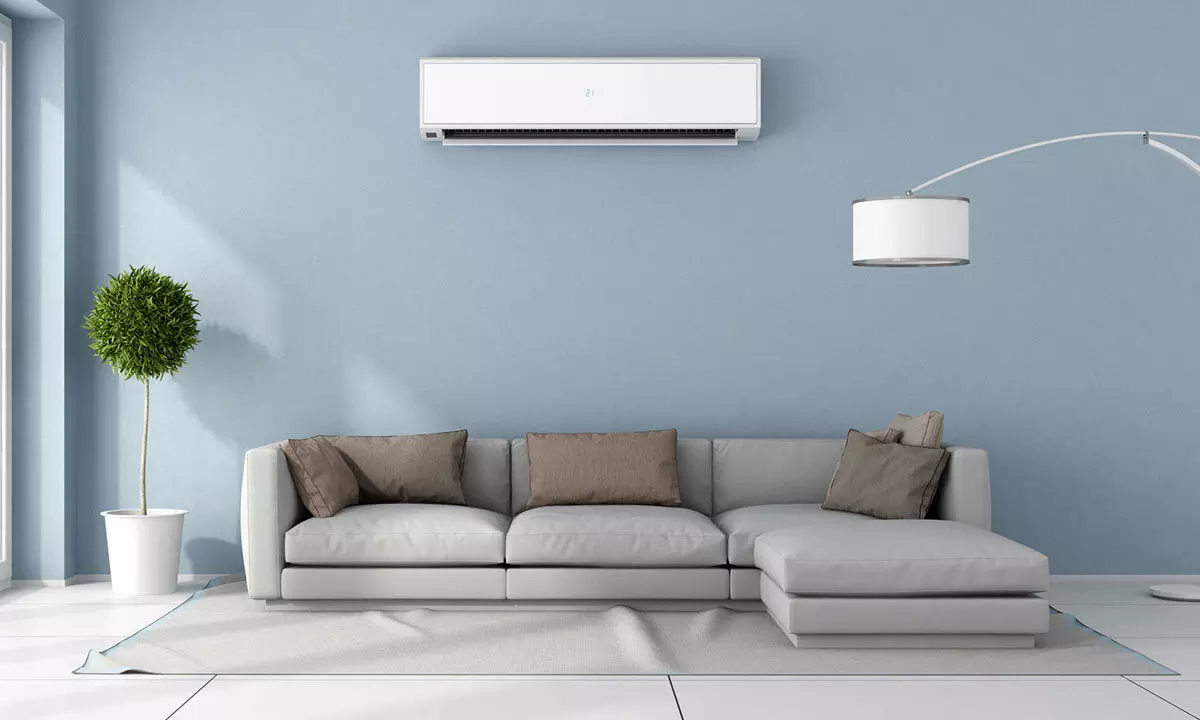Winter Air Quality Q&A: How spending more time indoors affects your air

Representational image
While we may be aware of outdoor air pollution, awareness of indoor air pollution remains low, which can be up to 10 times worse than outdoor air pollution.
A breath of fresh air may be hard to come by in the winter. Did you know the air inside your home is probably more polluted than outdoor air? When cold weather comes, we seal up, heat and humidify our homes – all of which worsens indoor air quality. With no outside air to dilute emissions from household appliances, furnishings and cleaners, you're breathing dirty air all winter.
Q: What happens to indoor air quality in the winter?
Cold air can get trapped beneath warm air in colder months in a process called temperature inversion. The warm air above the cooler air acts like a lid, suppressing vertical air mixing, which means that emitted pollutants can get trapped near the ground, encouraging poor air quality.
Q: Does indoor air quality change when we spend lots of time inside?
Lighting fires and candles indoors, festive cooking and opting to take your car rather than walk due to the colder weather may also heighten exposure levels as these are all sources of pollution. Central heating and cold air can lower the amount of moisture in the air, reducing humidity levels and impacting comfort and well-being indoors.
Q: If there is winter pollution outside, is there a possibility that indoors may not be polluted? Is it really better to stay indoors?
While we may be aware of outdoor air pollution, awareness of indoor air pollution remains low, which can be up to 10 times worse than outdoor air pollution. Outdoor and indoor air pollution are often treated as two separate entities. However, outdoor pollutants, such as vehicle exhaust fumes, pollen and mould spores, can enter our indoor spaces. When sealing our windows and doors, it may seem like we're shutting pollution out. But in truth, we're shutting it in. Once inside, they can react with indoor pollutants, creating a complex cocktail of dirty air.
We are potentially breathing this dirty air inside our homes while sleeping, working, cooking, or exercising, and we already spend 90% of our time indoors. Most air pollution can't be seen or smelled. But although it's often invisible, its effects are not. Therefore, it's important we understand the invisible dangers in our homes.
Q: What safe AQI levels should one maintain at home and in the office?
The Air Quality Index (AQI) is an index for reporting air quality on a daily basis. It is a measure of how air pollution affects one's health within a short time period. The purpose of the AQI is to help people know how the local air quality impacts their health. A yardstick that runs from 0 to 500; the higher the AQI value, the greater the level of air pollution and the greater the health concerns. The concept of AQI has been widely used in many developed countries over the last three decades. AQI quickly disseminates air quality information in real time.
Air Quality Index Categories:
Air Quality Index Categories
Q. How can I take care of indoor air quality when pollution risks are higher?
Fortunately, there are a number of ways to help improve your personal air quality exposure. Reducing pollution sources - such as aerosol sprays and candles within your home is a good start, as well as adapting your routines to include fewer polluting activities. When cooking with frying oil, make sure to use suitable ventilation or a purifier or open a window if the outdoor air pollution is suitable. Also, be careful of letting fresh air in as it could be an entryway for outdoor pollutants.
Using a purifier is another way to control your indoor air quality. Dyson's latest machine offers full-machine HEPA filtration- ensuring that what goes inside stays inside- and formaldehyde sensing as well as hygienic humidification and cooling airflow, maintaining air quality within your home all year round.
Q. How do air purifiers help?
Whether cleaning the air or cleaning the carpets, machines with fully sealed filtration systems are crucial to managing allergen capture. Dyson air purifiers combine HEPA-13 filters with a sealed filtration system – so the whole machine now achieves HEPA H13 grade. This ensures that 99.95% of particles as small as 0.1 microns, including visible dust particles to hair, pollen, allergens and bacteria, are trapped inside the machine.
The second layer of activated carbon captures gases like volatile organic compounds and nitrogen dioxide emitted from cleaning products, cooking or outdoors. Precision 360-degree rubber seals around the filters to ensure proper sealing within the machine, removing the possibility of air bypassing the filter and leaking pollen or other allergens back into the room.
Next Story














